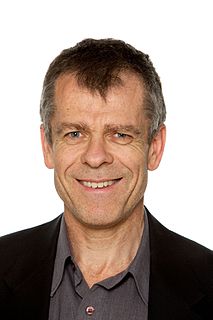
The University of California, San Francisco (UCSF) is a public research university in San Francisco, California. It is part of the University of California system and it is dedicated entirely to health science. It is a major center of medical and biological research and teaching.

The State University of New York at Buffalo is a public research university with campuses in Buffalo and Amherst, New York, United States. It is commonly referred to as SUNY Buffalo or the University at Buffalo (UB), and was formerly known as the University of Buffalo. It is the de facto flagship campus of the State University of New York (SUNY) system, with the largest enrollment, largest endowment and research funding as a comprehensive university center in the SUNY system. The university was founded in 1846 as a private medical college, but in 1962 merged with the SUNY system.

The State University of New York at Canton is a public, coeducational, residential college located in the Town of Canton in St. Lawrence County, New York, United States. Its northern location places it close to the Adirondack Mountains, the St. Lawrence River, and major Canadian cities such as Ottawa and Montreal.

The Institute of Psychiatry, Psychology and Neuroscience (IoPPN) is a research institution dedicated to discovering what causes mental illness and diseases of the brain. In addition, its aim is to help identify new treatments for them and ways to prevent them in the first place. The IoPPN is a school of King's College London, England, previously known as Institute of Psychiatry (IoP).

SUNY Downstate Medical Center is a hospital of the State University of New York system located in the Flatbush neighborhood of central Brooklyn, New York. It is the only academic medical center for health education, research, and patient care serving Brooklyn’s 2.5 million residents. As of Fall 2018, it had a total student body of 1,846 and approximately 8,000 faculty and staff.

UC Davis Medical Center, formerly known as Sacramento Medical Center, is a major academic health center located in Sacramento, California. It is owned and operated by the University of California as part of its University of California, Davis campus. The medical center sits on a 142-acre (57 ha) campus located between the Elmhurst, Tahoe Park, and Oak Park residential neighborhoods. The site incorporates the land and some of the buildings of the former Sacramento Medical Center as well as much of the land previously occupied by the California State Fair until its 1967 move to a new location.

UC San Diego Health is the academic health system of the University of California, San Diego in San Diego, California. It is the only academic health system serving San Diego and one of only two Level I trauma centers in the region. In operation since 1966, it comprises the UC San Diego Medical Center, Hillcrest; Jacobs Medical Center; Moores Cancer Center; Shiley Eye Center; and Sulpizio Cardiovascular Center, as well as several outpatient sites located throughout San Diego County. The health system works closely with the university's School of Medicine and Skaggs School of Pharmacy to provide training to medical and pharmacy students and advanced clinical care to patients.

Western University of Health Sciences (WesternU) is a private, non-profit graduate school for the health professions, with a main campus located on 22 acres (8.9 ha) in downtown Pomona, California, and an additional medical school campus on 50 acres in Lebanon, Oregon. WesternU offers degrees in osteopathic medicine, dental medicine, optometry, podiatric medicine, nursing, physician assistant studies, physical therapy, pharmacy, biomedical sciences, and veterinary medicine. With an enrollment of 3,833 students (2018–19),WesternU is one of the largest graduate schools for the health professions in California, offering 21 academic programs in nine colleges, and has the broadest array of graduate health sciences colleges in the United States.

The State University of New York Upstate Medical University is a SUNY health sciences university located primarily in the University Hill district of Syracuse, New York. SUNY Upstate is an upper-division transfer and graduate college with degree programs within the College of Medicine, College of Nursing, College of Health Professions, and the College of Graduate Studies. Its Syracuse campus includes Upstate University Hospital.
Stephen Vincent Faraone is an American psychologist. He has worked mainly on attention-deficit hyperactivity disorder and related disorders.
Ian Ainsworth Cook is an American psychiatrist. He is an associate professor of Psychiatry and Biobehavioral Sciences at the University of California, Los Angeles's David Geffen School of Medicine. He is also a research scientist at the UCLA Neuropsychiatric Institute and the Brain Research Institute at UCLA. He serves as director of the UCLA Depression Research Program and associate director of the UCLA Laboratory of Brain, Behavior, and Pharmacology. Cook holds the Joanne and George Miller & Family Chair in Depression Research.

Ricardo Azziz currently serves as Chief Officer of Academic Health and Hospital Affairs, State University of New York (SUNY) System Administration. In this role he provides support, strategic oversight, guidance, and advocacy for the educational, research and clinical programs within the SUNY academic health and health professions portfolio, representing over 30% of SUNY’s total annual $13.3 billion budget.
The Massachusetts General Hospital Psychiatry Academy is an educational organization for psychiatrists, psychologists, other mental health professionals, and other healthcare professionals who diagnose and treat patients with mental health disorders. It is directly organized and managed by the Department of Psychiatry at Massachusetts General Hospital, which is owned by Partners HealthCare, the largest healthcare provider in Massachusetts.

Esther Somerfeld-Ziskind was an American neurologist and psychiatrist. She conducted pioneering research into the use of insulin, lithium, and electroconvulsive therapy in the treatment of psychiatric disorders. She was the daughter of Czech and Romanian immigrants. She received her medical degree in Chicago, Illinois, and her Masters in Los Angeles, California. After marrying Eugene Ziskind, they opened their own practice. Somerfeld-Ziskind was later chair of the psychiatry department at Cedars-Sinai Medical Center.

Huda Yahya Zoghbi, born Huda El-Hibri, is a Lebanese-born American geneticist, and a professor at the Department of Molecular and Human Genetics, Baylor College of Medicine. Her work helped elucidate mechanisms of Rett syndrome and spinocerebellar ataxia type 1. In 2017, she was awarded the Canada Gairdner International Award and the Breakthrough Prize in Life Sciences.
Psych Central is an independent mental health social network. Psych Central is overseen by mental health professionals who create and oversee all the content published on the site. The site was created in 1995. The site was named as one of the Internet's 50 Best Websites in 2008 by Time, and has approximately 6 million unique visitors per month.

University at Buffalo School of Medicine and Biomedical Sciences also known as Jacobs School of Medicine and Biomedical Sciences is a medical school in the city of Buffalo, New York. Founded in 1846, it is one of the oldest medical schools in the U.S. It is the only medical school in Buffalo and is part of the SUNY system through the State University of New York at Buffalo.
BPDFamily.com is an online support group for the family members of individuals with borderline personality disorder (BPD). The group is one of the first "cyber" support groups to be recognized by the medical providers and receive professional referrals.

Dr. Kristine Yaffe is an internationally recognized expert in the field of cognitive aging and dementia. She is the Scola Endowed Chair and Vice Chair, Professor of Psychiatry, Neurology and Epidemiology and the Director of the Center for Population Brain Health at the University of California, San Francisco. In addition, Dr. Yaffe serves as the Chief of NeuroPsychiatry and the Director of the Memory Disorders Clinic at the San Francisco Veterans Affairs Medical Center. Dr. Yaffe received a bachelor's of science in biology-psychology from Yale University, a medical degree from the University of Pennsylvania School of Medicine, and completed residencies in neurology and psychiatry at the University of California, San Francisco.

Richard Allan Bryant AC is an Australian medical scientist. He is Scientia Professor of Psychology at the University of New South Wales (UNSW) and Director of the UNSW Traumatic Stress Clinic, based at UNSW and Westmead Institute for Medical Research. His main areas of research are Post Traumatic Stress Disorder (PTSD) and Prolonged Grief Disorder. On 13 June 2016 he was appointed a Companion of the Order of Australia (AC), for eminent service to medical research in the field of psychotraumatology, as a psychologist and author, to the study of Indigenous mental health, as an advisor to a range of government and international organisations, and to professional societies.



















